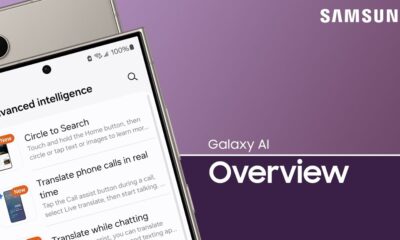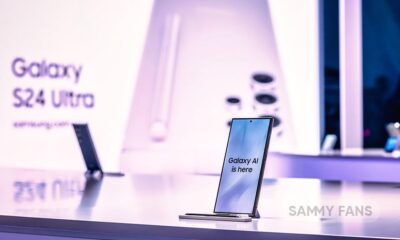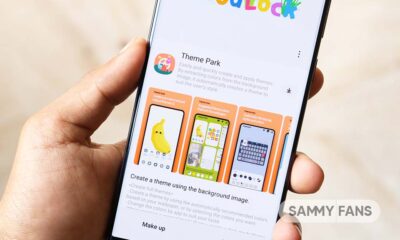Phones
Samsung developing hybrid OLED for foldable iPad/iPhone as Apple wants ‘no crease’

On foldable phones, we have seen so far, the crease is the biggest concern that doesn’t look good to anyone, but Samsung managed to take it to the least level with the Galaxy Z Fold 4. Moving ahead, Apple wants to develop a foldable iPhone that will have “no crease.”
According to Korean media outlet TheElec, Apple wants Samsung Display and LG Display to develop foldable screens for iPhone that won’t crumble, reports AppleInsider. As reported, the first gen foldable iPhone could equip a hybrid OLED panel in order to offer a creaseless foldable screen.
Join Sammy Fans on Telegram
Sources of TheElec revealed that Apple is working to vanish the crease and small crumples that can appear on highly foldable screens when they are folded. To do so, the US tech giant is demanding display suppliers LG and Samsung develop hybrid OLED panels.
Follow Sammy Fans on Google News
Samsung is the most trusted and leading vendor in not only smartphones but in foldable smartphone segment as well. Its biggest rival Apple remains silent on foldable iPhone plans, but it is silently working to ship the first model in the coming years.

Typical rigid OLED panel (inflexible) uses glass as a substrate, while flexible OLED panels manage to use a plastic substrate as additional protection. The rumored hybrid panel would be a combination of both glass and plastic for the OLED panel, which also uses the thin-film encapsulation method.
Apple is expected to use ‘hybrid’ OLED panels in its first OLED iPad that it will launch a few years from now, TheElec has learned.
Last but not least, Samsung and LG Display are currently developing an ultra-thin glass substrate for use in hybrid OLED panels. Both vendors are attempting to make glass substrates that are 2mm thin, instead of the 5mm ones currently mostly used.
“The technology is currently not near the commercialization stages and will take at least a year from now to develop.”
Phones
Samsung’s new 5G modem fuels satellite connectivity in Google Pixel 9 series
Google‘s Pixel 9 series is ready to introduce a significant upgrade with emergency satellite connectivity and new Samsung modem. This series aims to solve the persistent connectivity problems seen in previous Pixel models.
According to the information via AndroidAuthority, Samsung Modem 5400 will be integrated with Tensor G4 chips for the Pixel 9 series to bring significant improvements in terms of speed, power efficiency, and stability
The Pixel 9’s modem will support 5G non-terrestrial networks (NTN), which means it will enable satellite-based communication. This is particularly important for emergencies where standard network coverage is unavailable.
Moreover, this innovative feature is not exclusive to the Pixel 9. The next-generation Pixel Fold and a 5G tablet, currently under development, will also be equipped with the same modem.
One of the most notable features of this upgrade is the ability to connect with emergency services via satellite, which is crucial for users in areas without cellular coverage. To facilitate this, Google has implemented a system that guides users through a set of questions, allowing for quick communication with emergency responders. For example,
- What happened?
- [Are you/Are they/Is everyone] breathing?
- In total, how many people are [missing/trapped]?
- What best describes your situation?
- What is on fire?
- Are there weapons involved?
Although the release details for the 5G tablet are still unclear, the Pixel 9 series is expected to lead the way in mobile communication technology, ensuring users can remain connected in any location.
Google Pixel 9 renders reveal design overhaul, telephoto camera
Stay up-to-date on Samsung Galaxy, One UI & Tech Stuffs by following Sammy Fans on X/Twitter. You can also discover the latest news, polls, reviews, and new features for Samsung & Google Apps, Galaxy Phones, and the One UI/Android operating system.
Do you like this post? Kindly, let us know on X/Twitter: we love hearing your feedback! If you prefer using other social platforms besides X, follow/join us on Google News, Facebook, and Telegram.
Phones
Samsung’s Variable Aperture Camera makes surprise return with Leica Leitz Phone 3
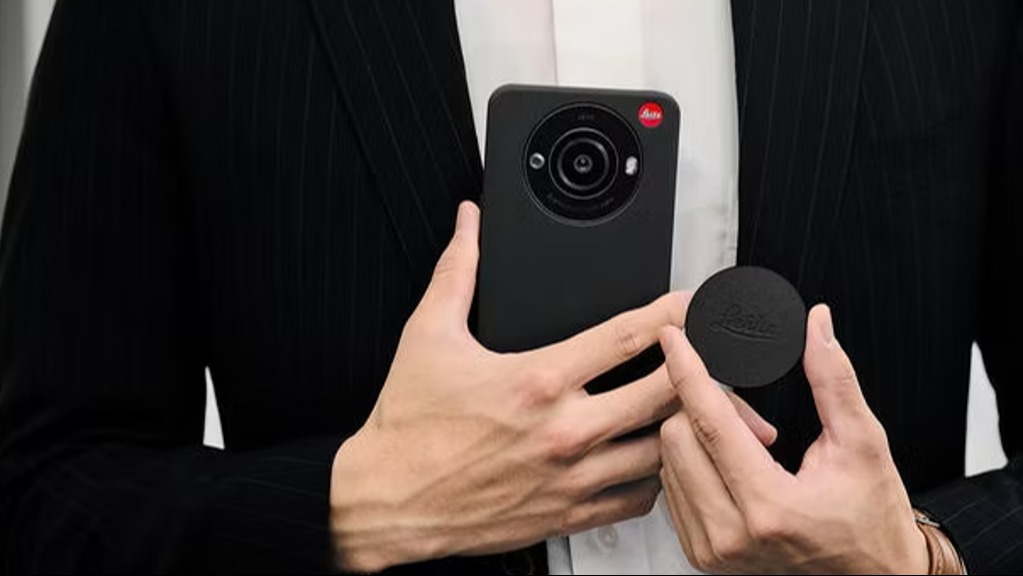
Samsung’s Galaxy S9 and S10 were equipped with variable aperture Camera tech, which could be revived with the next Leica phone. World-know camera manufacturer Leica also has a dedicated smartphone segment, which focuses on stunning camera specifications.
Latest inputs indicate that the upcoming Leitz Phone 3 by Leica will feature a variable aperture camera tech – the same as Samsung’s legendary Galaxy S9 and Galaxy S10. The company is reportedly working on the Leitz Phone 3 which will be launched in Japan only.
Camera Specs
Leica Leitz Phone 3 is said to have a 47.2MP primary 1-inch sensor with an aperture of f/1.9, a depth sensor with 1.9MP, plus a 12.6MP sensor for the front camera. The specs are the same as Phone 2, but the variable aperture feature sets the Leitz Phone 3 apart.
The company itself confirmed that the Leitz Phone 3 is equipped with variable aperture camera tech. This high-profile camera feature will allow users to adjust the opening to the sensor to improve photography in different lighting conditions.
Leica is also said to have optimized software with Noctilux-M 1:1.2/50 mm, Summilux-M 1:1.4/28 mm, and Summilux-M 1:1.4/35 mm sensors. As a result, the smartphone will allow users to choose between f/1.2, f/1.4, and f/8 aperture levels to better shoot in sunlight and low-light conditions.

Image: AndroidPolice
Stay up-to-date on Samsung Galaxy, One UI & Tech Stuffs by following Sammy Fans on X/Twitter. You can also discover the latest news, polls, reviews, and new features for Samsung & Google Apps, Galaxy Phones, and the One UI/Android operating system.
Do you like this post? Kindly, let us know on X/Twitter: we love hearing your feedback! If you prefer using other social platforms besides X, follow/join us on Google News, Facebook, and Telegram.
Phones
Xiaomi Mix Fold 4 targets Samsung Fold’s Achilles heel w/ dual zoom camera
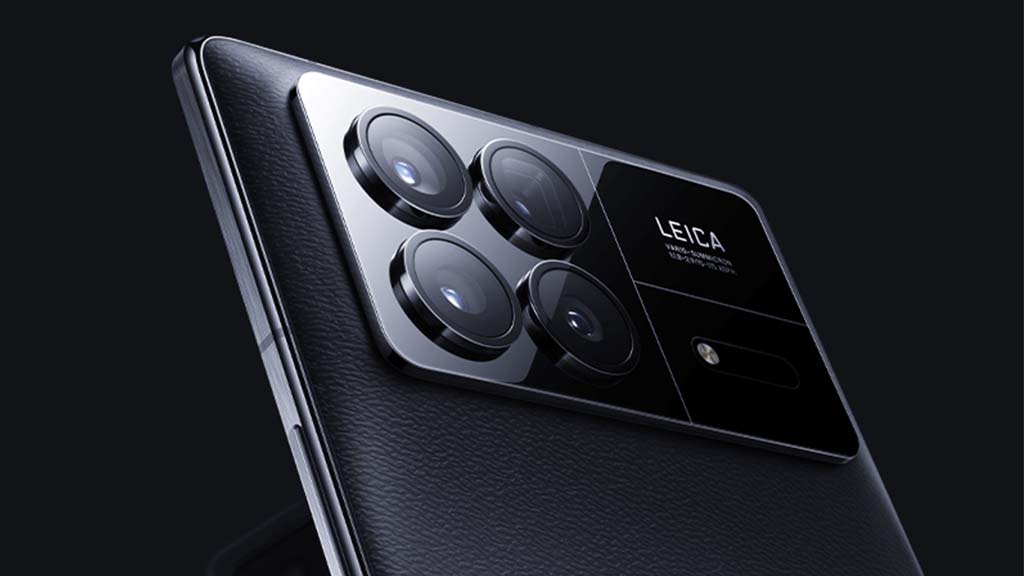
Samsung Galaxy Z Fold 6 and Z Flip 6 might not get any camera upgrades. Meanwhile, the Xiaomi MIX FOLD 4 is expected to be equipped with dual zoom camera sensors, which will leave the next Samsung Fold in the dust.
AndroidHeadlines spotted in HyperOS code that the upcoming Xiaomi MIX FOLD 4 features two telephoto cameras: a 60MP 2x camera (OV60A40) and a 10MP 5x periscope lens (S5K3K1).
Dual telephoto isn’t happening for the first time in foldable phones as vivo X Fold and X Fold Plus already offer the feature. However, dual zoom cameras are still difficult to see in regular phones and rare in foldables.
While Xiaomi is uplifting the foldable zoom camera game with MIX FOLD 4, Samsung might continue to bring a 10-megapixel 3x telephoto camera to its next-generation Galaxy Z Fold smartphones.
Apart from this, Xiaomi’s next Fold boasts a 50MP main camera (OVX8000), a 13MP ultrawide rear lens (OV13B10), and a 16MP selfie camera on each panel. The rated battery capacity and charging speed of 100W is also rumored.

Image: Xiaomi
Stay up-to-date on Samsung Galaxy, One UI & Tech Stuffs by following Sammy Fans on X/Twitter. You can also discover the latest news, polls, reviews, and new features for Samsung & Google Apps, Galaxy Phones, and the One UI/Android operating system.
Do you like this post? Kindly, let us know on X/Twitter: we love hearing your feedback! If you prefer using other social platforms besides X, follow/join us on Google News, Facebook, and Telegram.

